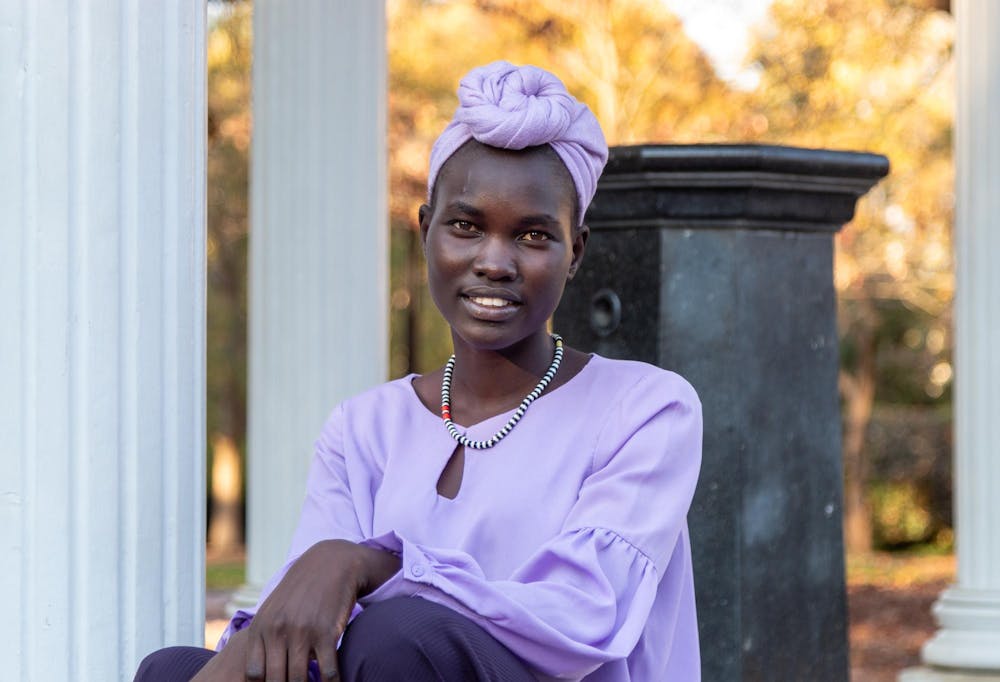For first-year Ajier Awan, the move from South Sudan, where she grew up, to UNC was a "a huge transition.”
From navigating class registration to dealing with culture shock, Awan said one of the most significant challenges was finding a community. After initially struggling to find people she could relate to and connect with, Awan said she eventually found most of her friends through One Africa, an association for students of African descent at UNC.
Susan Chung, a clinical social worker with Counseling and Psychological Services who works with international students, said feelings of isolation are common among international students.
Çağıl Torgal-Aksoy, a psychology intern at CAPS who works with Chung and a doctoral student, said a contributing factor to this loneliness is the separation international students experience from their families and support systems.
“Our international students are very isolated,” Chung said. She also said many international students just exist without being included as part of the campus.
First-year Sophia Moloo, who is from Canada, agreed that distance from home is a challenge. She said she has not found the transition to UNC to be particularly difficult, but thinks that being from Canada has made the transition easier for her than for students from countries farther away. Moloo cited the move-in process as one example of this difference. She said being just a two-hour plane ride from home meant that her parents could help her move in, unlike most other international students.
“The majority of international students, when I met them, they came alone — and for them, move-in was really hard,” Moloo said.
In hopes of combating this isolation and helping students find a community, Chung started a support group for international students in fall 2022. The group of 12 meets once a week to talk about everything from identity to transitioning to life in the United States.
“I’m really passionate because I’m an immigrant myself,” Chung said.
Torgal-Aksoy, who assists the group, said the international student members find support within the small community.
“Most students don’t have their families, like main support systems here with them, so I think it’s particularly important for them to have a space that they can feel supported and support others, too,” Torgal-Aksoy said.
While the support group is no longer accepting new members for the fall semester, Chung said interested students can join in the spring by filling out a form on the CAPS website and doing a screening interview to determine if they would be a good fit with the group.
CAPS offers other resources for international students, including drop-in counseling hours three times a semester. Chung said she also hosts a monthly “Teatime with Susan,” which focuses on a different theme each month, including homesickness and adjusting to American life.
CAPS also offers mental health services through the Multicultural Health Program. Chung said the MCHP is geared towards supporting students of color and international students specifically.
Still, Chung said she wishes more resources were available to international students, particularly because seeking mental health support is often stigmatized in international communities. In particular, she said she would like international students to have a designated counselor who may understand the issues they face better than existing CAPS counselors.
Moloo said she thinks designating international students to mentor first-years from the same country or region might be a better way to provide support because not all students may feel comfortable opening up to an adviser who does not share their experiences.
“I think if it was student-led, it might create more of a community,” she said.
Awan suggested a similar mentorship program, and also said a student-based organization that brings together all of UNC’s international students, regardless of origin, should be established at UNC.
Chung said she hopes that non-international UNC students would consider the challenges of isolation that international students are facing.
“Imagine yourself as an international student in another country. I hope they can understand, ‘Oh, that must be hard,’” Chung said.



